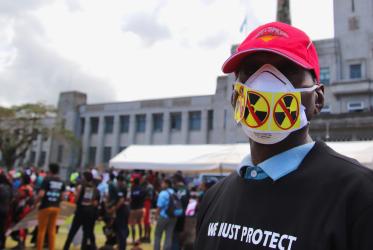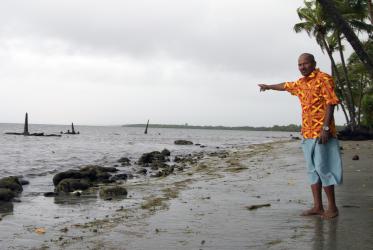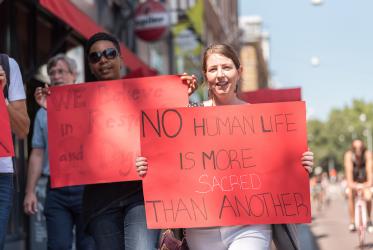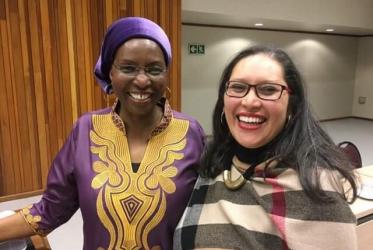Displaying 1 - 20 of 43
29 August 2023
Pacific Theological College publishes “A COVID-19 Wellbeing Statement”
03 September 2021
Churches should use their voice on climate change
26 February 2020
Pan African Women of Faith issue fervent Call to Action
20 November 2018
WCC executive committee tackles public issues
07 November 2018
WCC supports UN petition from French Polynesia
07 November 2018
WCC greets new leadership of ACT Alliance
31 October 2018
Worrying food shortages compel faith action
19 October 2018
GETI students plant trees, in service for greener future
07 March 2018
In Zambia, foreign investors complicate “economy of life”
06 September 2017
GEM School: integrating theology and economics
05 September 2017











